Pope Francis’s Biggest Mistake Was China
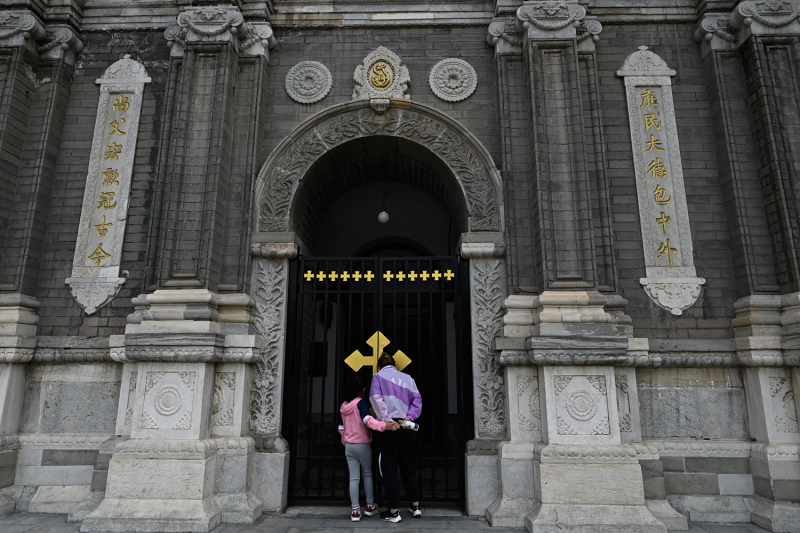
Pope Francis’s Biggest Mistake Was China
A desire to deal with Beijing led to papal silence on human rights.
People visit St. Joseph’s Church in Beijing on April 26. Pedro Pardo/AFP via Getty Images
As the Catholic Church—and the world—mourns the death of Pope Francis, reflects on his legacy, and looks to the future with the election of a new pontiff, the Vatican would do well to review its approach to China.
Francis’s pontificate contains much for which advocates of human rights can be grateful. Yet the Vatican’s China policy is not one of them. A pope who spoke often about injustice and persecution around the world failed to speak on the atrocities in China.
As the Catholic Church—and the world—mourns the death of Pope Francis, reflects on his legacy, and looks to the future with the election of a new pontiff, the Vatican would do well to review its approach to China.
Francis’s pontificate contains much for which advocates of human rights can be grateful. Yet the Vatican’s China policy is not one of them. A pope who spoke often about injustice and persecution around the world failed to speak on the atrocities in China.
Although vocal about Sudan, Yemen, Gaza, and Myanmar, his silence about the persecution of Uyghurs, Tibetans, Falun Gong practitioners, and Christians across China was deafening, and a conscious choice to look away.
There were numerous issues that directly concerned the church but where the pope still failed to comment, many of them linked to the dismantling of Hong Kong’s freedoms. He never prayed publicly for Hong Kong’s most prominent Catholic political prisoner, Jimmy Lai, nor met with Lai’s son Sebastien. When Hong Kong’s bishop emeritus, Cardinal Joseph Zen, traveled to Rome for an audience in 2020, it was never granted.
What could explain this?
It all hinges on the secret concordat the Vatican signed with the Chinese Communist Party (CCP) in 2018, giving Beijing a say in the appointment of Catholic bishops in China—a concordat regularly violated by Beijing in its continuing persecution of Catholics and its unilateral appointments of some Catholic bishops.
Francis’s intentions were no doubt good.
He wanted to normalize the status of the Catholic Church in China, which had been divided between a state-approved institution largely out of communion with Rome and an underground church persecuted for its loyalty to the Vatican. While there were some bishops recognized by both Rome and Beijing, they functioned in a gray area of uncertainty. Francis wanted to unite Catholics in the state-approved and underground congregations into one congregation.
He wished to see religious freedom in China improved, and presumably thought a compromise with the CCP would see better protections for Catholics.
And he was motivated by a romantic association with his fellow Jesuit Matteo Ricci, a 16th-century missionary who gained influence in China’s imperial court. Walking in Ricci’s footsteps, he wanted to be the first pope to visit China.
Defenders of the Vatican’s China policy would argue that they are playing a long game.
Yet this approach is naive.
Since the signing of the Sino-Vatican agreement, religious freedom in China has deteriorated.
Disunity among Chinese Catholics has been exacerbated, with many underground faithful left feeling betrayed by the very Rome to which they pledge their alliance.
Several underground Catholic bishops who had spent years in prison for their loyalty to the Vatican were asked by Rome to retire in favor of Beijing-appointed bishops.
Several bishops and priests have been arrested since the agreement, detained or disappeared by the authorities, including Bishop Augustine Cui Tai, Bishop Joseph Zhang Weizhu, Bishop Vincent Guo Xijin, and Bishop Peter Shao Zhumin.
Last year, the Hudson Institute published a report detailing the persecution of 10 Chinese bishops.
The Vatican has remained silent about these arrests, failing to advocate for its own bishops’ release.
And Beijing has breached the agreement at least twice, appointing Bishop John Peng Weizhao as auxiliary bishop of Jiangxi and Bishop Joseph Shen Bin in Shanghai without the required approval of the pope.
Meanwhile, Francis’s hopes to walk in Ricci’s shoes never materialized. As far as Chinese President Xi Jinping was concerned, an invitation to Francis to visit Beijing was never on the table. In his 13 years in power, Xi has exerted increasing personal control of all policy areas, including religion, becoming known as “chairman of everything.” He has abandoned the CCP’s collective leadership, building a cult of personality in its place; brought control of religious affairs policy from the provincial authorities to the center; and launched a campaign of “Sinicization” of religion that aims to further co-opt religion under the CCP’s control. Xi declined to meet the pontiff when both men were in Kazakhstan in 2022.
Even Beijing’s reaction to his death has been muted and terse, only commenting when asked at a routine foreign ministry press conference, nearly 24 hours after the news broke.
The chances of the Vatican gaining Ricci-style influence in Zhongnanhai any time soon are zero: For Communist China, giving a larger role to any religion would undermine its Marxist-Leninist foundations.
Whoever is elected as the next pope should order a wholesale review of the Vatican’s China policy.
First, the Sino-Vatican agreement should be published.
It remains a secret deal, despite being renewed three times without any transparency or apparent reevaluation.
If it is a good deal, why can we not know its contents? All we know is that it gives the CCP a say in the appointment of Catholic bishops—which, given the party’s official atheism, seems odd in itself. It may inadvertently reassert the CCP’s claim to centrality in all affairs touching on Chinese lives, including religious ones such as the reincarnation of the Dalai Lama.
Second, conditions should be set for its next renewal, currently scheduled for 2028.
At a minimum, the Vatican should require the release of all imprisoned Catholic bishops and priests, including Bishop James Su Zhimin, who has been in continuous secret detention for over 27 years, and a commitment by Beijing to stop arresting clergy.
The Vatican should also demand the release of Hong Kong entrepreneur, pro-democracy activist, and devout Catholic Jimmy Lai, a 77-year-old British citizen who faces the prospect of spending the rest of his life in jail. Failure to meet these criteria should result in the suspension or termination of the agreement by the Vatican.
And third, the Vatican should end its silence on human rights in China.
The next pope should speak out boldly—and prayerfully—for the Uyghurs, whose persecution has been recognized as a genocide by the past two U.S. administrations, several parliaments, and an independent tribunal. Francis spoke out against the genocidal persecution of the Rohingya in Myanmar and visited them in the refugee camps in Bangladesh, making his silence on the Uyghur genocide all the more troubling.
He should engage with the Tibetan spiritual leader, the Dalai Lama, as all popes except Francis (and John Paul I, who lived for only slightly over a month in office) have done for the past 50 years.
Given that the Holy See is one of the few states to retain official ties with Taiwan, he should be vocal in speaking out for its vibrant democracy and for peace in the Taiwan Strait.
And he should pray publicly and regularly for persecuted Christians, Falun Gong practitioners, and human rights defenders across China.
None of this requires a confrontational approach. These can be raised as prayers in the same way popes pray for many other global issues.
But it does require boldness, and an end to the failed policy of kowtowing—or, as it was known in relation to the Soviet Union, “Ostpolitik.”
The only place any Catholic should genuflect is at the altar of God, not the gates of Zhongnanhai.
The next pope must show a willingness to defend the church’s values of human dignity, human liberty, and human rights more consistently, including in China.
Benedict Rogers is the co-founder and CEO of Hong Kong Watch, a senior analyst for East Asia at the international human rights organization CSW, and the co-founder and deputy chair of the U.K. Conservative Party Human Rights Commission.
More from Foreign Policy
-

An illustration shows a line of large shopping carts facing down a small Donald Trump figure holding two shopping bags. The stars of China’s flag are in the upper left corner. Why Beijing Thinks It Can Beat Trump
China’s elites have a new confidence in their own system.
-

U.S. Army Chief of Staff Randy George speaks to U.S. soldiers at the Hohenfels Training Area in southern Germany on Feb. 6. A Drawdown of U.S. Forces in Europe Is All but Certain
Here’s how the Pentagon can rebalance its approach to the continent without sacrificing U.S. interests.
-

University of California, Los Angeles students, researchers, and demonstrators rally during a “Kill the Cuts” protest against the Trump administration’s funding cuts on research, health, and higher education in Los Angeles on April 8. Why Authoritarians Attack Universities First
A Yale professor and expert on fascism talks about why he’s leaving the United States under Trump.
-

Dwight D. Eisenhower looks over a piece of paper while sitting on a couch as Robert Cutler looks over his shoulder. How Generations of Experts Built U.S. Power
And now Trump is throwing it all away.
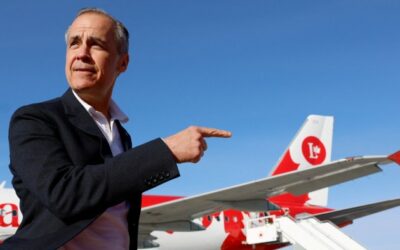
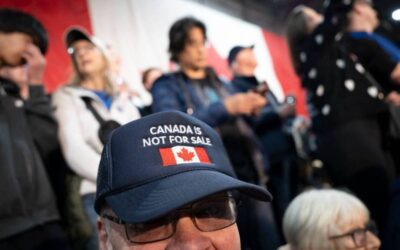
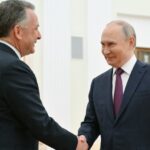

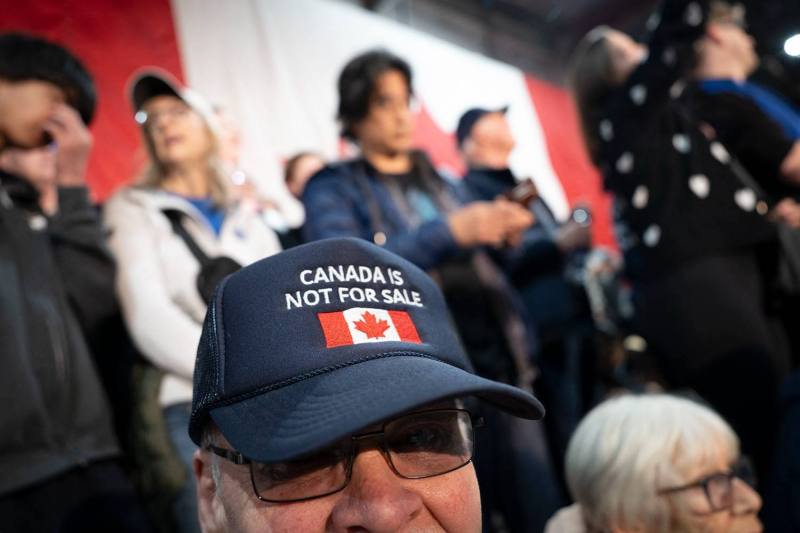
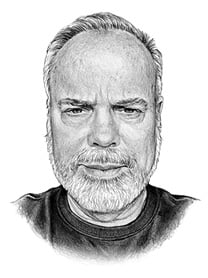
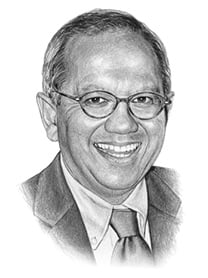
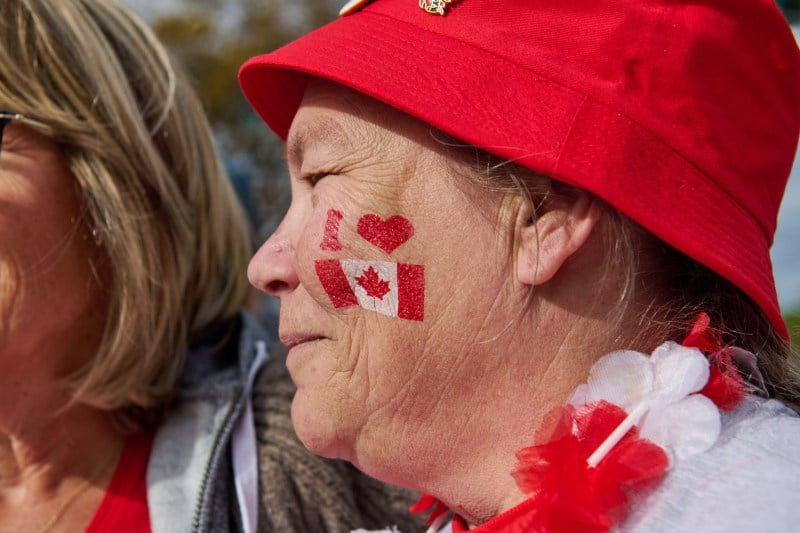
Join the Conversation
Commenting on this and other recent articles is just one benefit of a Foreign Policy subscription.
Already a subscriber?
.
Subscribe
Subscribe
View Comments
Join the Conversation
Join the conversation on this and other recent Foreign Policy articles when you subscribe now.
Subscribe
Subscribe
Not your account?
View Comments
Join the Conversation
Please follow our comment guidelines, stay on topic, and be civil, courteous, and respectful of others’ beliefs.
Change your username |
Log out
Change your username:
CANCEL
Confirm your username to get started.
The default username below has been generated using the first name and last initial on your FP subscriber account. Usernames may be updated at any time and must not contain inappropriate or offensive language.